Chinese are flocking to this Shandong city for barbecues, but it's not all rosy
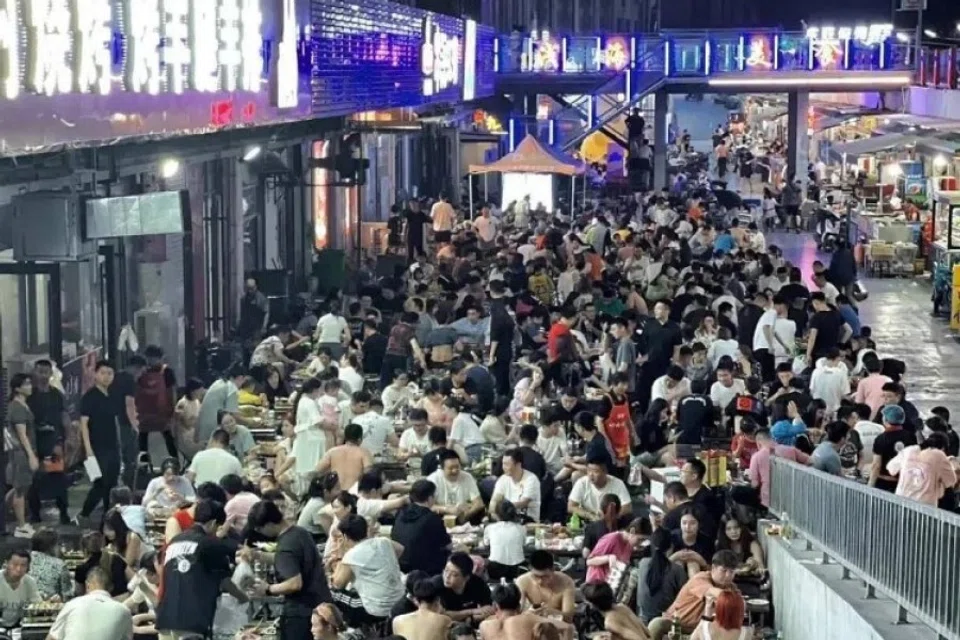
"A table, stove and a piece of pancake; paired with some portions of skewers, scallions and dipping sauce."
Most Chinese netizens would have recently come across "Zibo barbecue" on social media. The former industrial city of Zibo in Shandong has exploded in online popularity since March when university students started visiting the city for its unique smoky barbecue.
Searches for Zibo barbecue on all platforms have since increased by 770% year-on-year. Topics related to the cuisine have appeared on top searches almost daily on Weibo. On Xiaohongshu, a platform popular among Chinese youths, there are more than 40,000 posts and 5,000 targeted shares related to Zibo barbecue. In addition, there are over 10 million searches for Zibo barbecue on the short-video platform Douyin, an increase of more than 100 times year-on-year.
Tourists from all over China have flocked to this third-tier city just to taste its barbecue. On 15 April, 83,635 passengers arrived and departed from Zibo Railway Station, setting a record for the highest number of passengers in a single day.

What makes Zibo barbecue so special that people are willing to wait in line for hours just to eat it? How did it suddenly become a phenomenon? And can Zibo seize this opportunity to regain its popularity and transform itself into a tourist city?
The main draw of Zibo barbecue is its lively and smoky environment, and its affordability.
How did Zibo barbecue become so popular?
Zibo barbecue is not a new concept, nor does it involve high-end cooking techniques. Roadside stalls set up a small charcoal stove in the middle of a table; skewers of meat, seafood and vegetables of moderate size are grilled but not cooked all the way through. Customers would gather around their stoves and finish cooking the fare according to their preferences. They dip the juicy meat in sauce, sandwich it in a small pancake with a couple of scallions, and then enjoy it with beer and side dishes while chatting away in the smoky atmosphere.
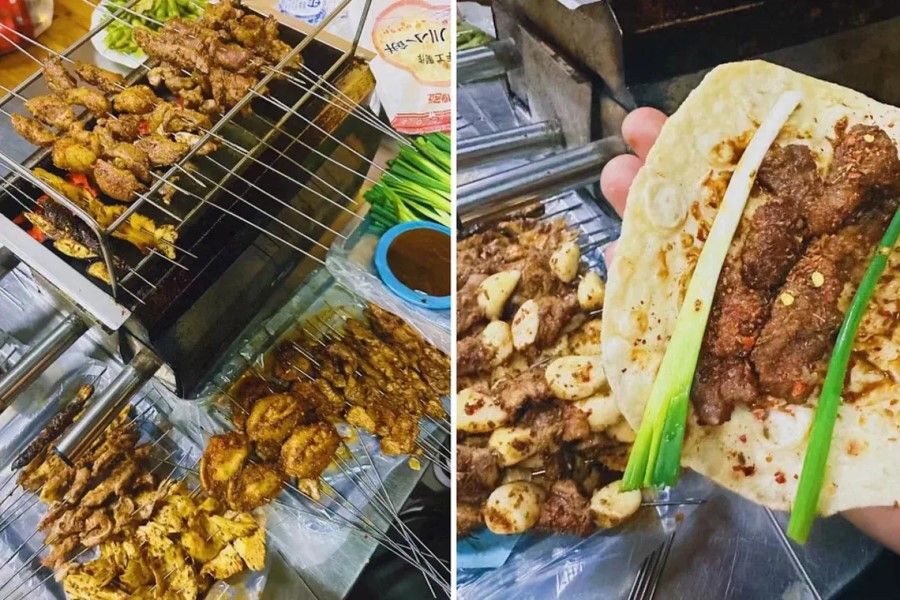
The main draw of Zibo barbecue is its lively and smoky environment, and its affordability. Based on receipts shared by Chinese netizens, each stick costs about 1 to 2 RMB (US$0.15 to US$0.30) - the bill is unlikely to hit 100 RMB even if a man eats his fill; women with smaller appetites would only rack up a bill of 20 or 30 RMB.
All this has made Zibo barbecue popular among university students in Shandong. After the Covid-19 lockdown was lifted last year and the subsequent peak of Covid-19 infections and flu at the beginning of the year had subsided, university students began their "revenge travel" in March. The online narrative describes Shandong college students as climbing Mount Tai in Tai'an, visiting Baotu Spring in Jinan, clubbing in Qingdao, or gathering in groups in Zibo for barbecue.
A story circulating online explains why they choose to go to Zibo. When Shandong University was placed under lockdown and quarantine in May last year due to Covid-19, Zibo had apparently taken good care of the students that were evacuated to the city and even treated them to barbecue after their quarantine. As a result of the touching hospitality, the students made a pact to return after the pandemic - and so they did when spring blossomed.
The university students brought Zibo barbecue to the attention of Chinese netizens, and its popularity grew further after many online celebrities caught on to the trend. By early April, the launch of the "Zibo barbecue high-speed rail" by the local authorities again took the internet by storm, pushing the cuisine's popularity to new heights.
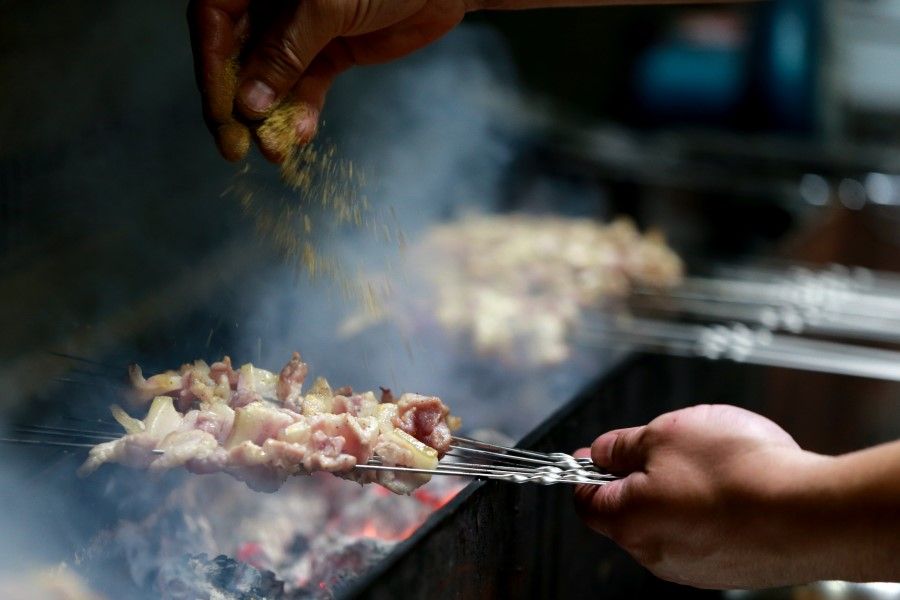
As of 16 April, more than 170 new barbecue-related establishments have been registered in Zibo in April, with over 20 additions in just one day on 14 April. However, netizens' posts on social media show that there is still a shortage of Zibo barbecue restaurants: long queues would form in front of the restaurants even before opening time. The popular internet-famous shops can serve over 500 tables of diners per day, but many items would quickly sell out, so people in the queue would have to be turned away.
... local officials have offered spending vouchers, discounted youth lodgings, "barbecue trains" and new public transport lines, custom maps of barbecue eateries, and other conveniences for tourists.
Shandong's 'barbecue train'
After three years of Covid-19 and last year's large-scale lockdown, the crowd-loving Chinese are finding it hard to resist the attraction of affordable street-style barbecue fit for group gatherings, while strong support from local officials has further boosted Zibo barbecue's popularity.

According to Chinese media reports, since Zibo barbecue went viral in March, local officials have offered spending vouchers, discounted youth lodgings, "barbecue trains" and new public transport lines, custom maps of barbecue eateries, and other conveniences for tourists. Netizens have even received welcome gifts including local specialties and drinks on their train journeys to Zibo.
The local government has also set up the "Golden Stove Award" for famous shops selling Zibo barbecue, and established a barbecue association to regulate industry standards. More law enforcement personnel have been dispatched to maintain public order at barbecue and street stalls, and authorities have repeatedly warned merchants or taxi drivers against overcharging or price-gouging.
Apart from the officials, local netizens also wrote that they are willing to make room for the tourists and not dine out on the weekends and other peak periods.
Chinese netizens are obviously impressed by "Friendly Shandong" (好客山东), and have been praising the Zibo local government, sharing online sentiments such as "Zibo local government responded quickly"; "Zibo warned businesses against arbitrary price increase"; and "lessons from Zibo's city management".
"When Zibo was doing well economically, it was not famous for its barbecue and did not make use of this selling point to promote the city..." - Chinese netizen
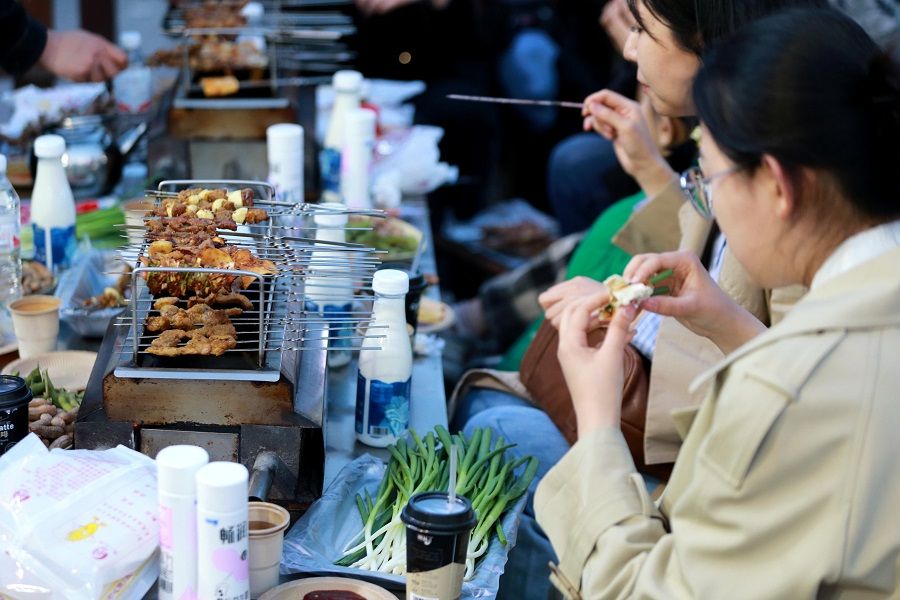
However, some netizens said Zibo's quick response resembled "a declining city clutching at straws" to save itself, which is somewhat distressing to see.
A netizen on Xiaohongshu wrote, "When Zibo was doing well economically, it was not famous for its barbecue and did not make use of this selling point to promote the city... 'Friendly Shandong' is real, but so is its economic decline and severe population loss."
What else can Zibo offer?
Before barbecue eateries gained popularity and became the city's new calling card, Zibo was known as the "capital of the ancient state of Qi" and the "capital of porcelain". It is the official birthplace of cuju (蹴鞠), which FIFA recognises as the earliest version of modern soccer, and the hometown of Qing dynasty writer Pu Songling. However, based on the travelogues shared online, most tourists who flock to Zibo for its barbecue are probably unaware of these facts.
Although Zibo's GDP exceeded 440 billion RMB (US$64 billion) last year and ranked seventh among Shandong's 16 prefecture-level cities, in the 1990s, Zibo was the third largest economy in Shandong after Qingdao and Jinan, and one of the top 50 cities in China in terms of overall strength. Data show that Zibo was a former industrial base with a modern industrial development history of over a hundred years. Coal, ceramics and electric machinery were the core industries of the city.
Since 2018, Zibo's urban population has turned from net inflow to net outflow, with the pandemic further worsening the city's economy.
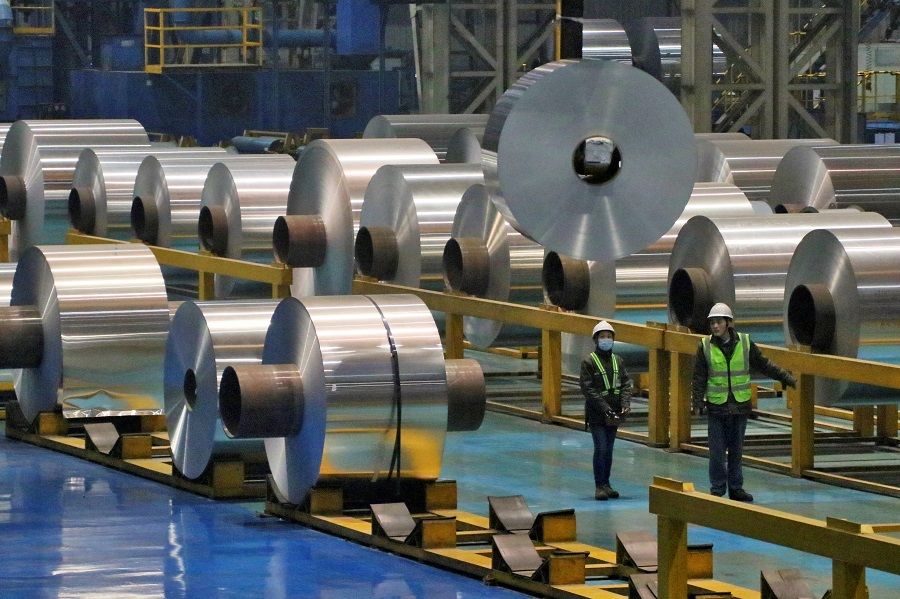
Around the 1960s, renowned Chinese enterprises such as Sinopec Qilu Petroleum Chemical Company, Shandong Aluminium Industry Company and Shandong Xinhua Pharmaceutical Co., Ltd were established in Zibo. But with the transformation of China's heavy industry, economic restructuring and the pressure of environmental protection, Zibo became the only Chinese city that has all three dreaded characteristics of "being resource-depleted, having isolated industrial and mining areas, and having old industrial bases". Since 2018, Zibo's urban population has turned from net inflow to net outflow, with the pandemic further worsening the city's economy.
A Chinese commentary described that just as the booming Northeast Chinese barbecue industry hides a declining local economy, Zibo barbecue also hides a history of urban development that has been marginalised for years.
An opportunity for the city?
The emergence of Northeast barbecue can be said to be related to the wave of layoffs brought about by the state-owned enterprise reform in the 1990s. Some people who lost their jobs started low-cost barbecue businesses, while even more of them became customers of these eateries, munching on affordable skewers and downing beer, reminiscing about their glory days.
While the large skewers of Northeast barbecue are still a local delicacy today, they have spread across the country and even overseas, and people no longer travel to Northeast China specially for barbecue. Thus, Zibo now faces the great challenge of turning the popular Zibo barbecue into the city's "intellectual property" that drives the development and transformation of the whole city.
... even if a city quickly becomes an online hit, the situation could reverse and turn into negative publicity. - Sun Xiaorong, a member of the Chinese Tourism Reform and Development Advisory Committee
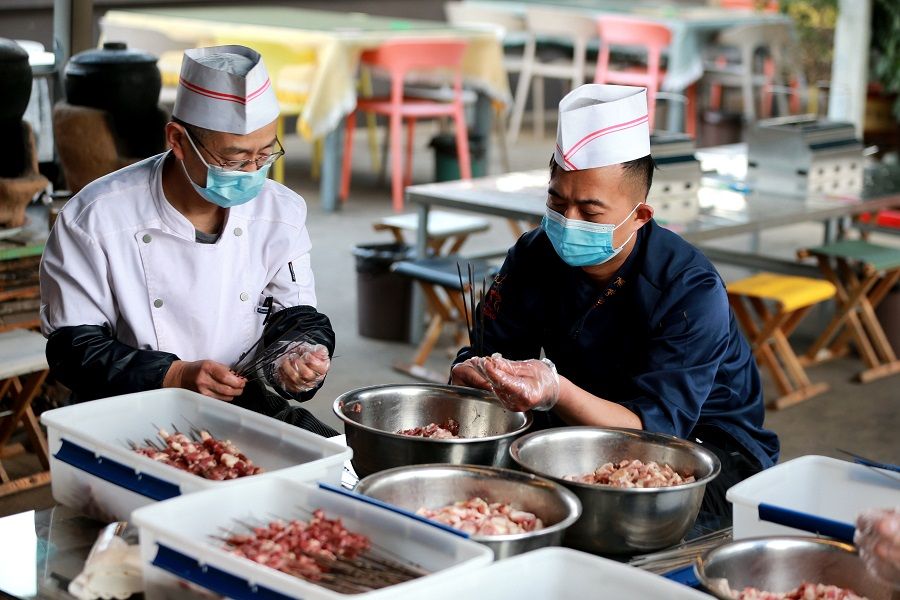
Sun Xiaorong, a member of the Chinese Tourism Reform and Development Advisory Committee, told China Newsweek that apart from further solidifying the reputation of Zibo barbecue, the city also needs to showcase other attractions it can offer to consumers.
Sun noted that if the city only has Zibo barbecue, it will only be "a matter of time before this fad fades away".
Taking the examples of the small Cao county in Heze, Shandong, that momentarily became the "centre of the universe" due to a trending post; and the popular snail noodles, or luosifen, that failed to jumpstart Liuzhou's economy, Sun pointed out that such internet trends are short-lived. He noted that if the consumer, business and development environments and other public services are not properly established, even if a city quickly becomes an online hit, the situation could reverse and turn into negative publicity.
While social media made the "grassroots" Zibo barbecue go viral online, the local government's swift and targeted measures extended the cuisine's wave of popularity and expanded the "internet celebrity halo" to the city of Zibo and created the "Friendly Shandong" image. But relying on barbecue is certainly not enough to maintain the city's popularity or turn it into a tourist destination.
This article was first published in Lianhe Zaobao as "烧烤怎么带火了淄博?".
